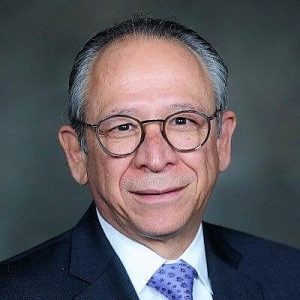...It seems to be that many ministries and secretariats of health forget about preparedness. We have seen, time and again, that every time there is a regional epidemiological problem, a health issue of significant proportions in some country, things must start from scratch to face it and control it. Preparedness plans -if any- are not quickly implemented, laboratory equipment or reagents, not ready, personal protection equipment not available, or too old to be used...
By Francisco Becerra
Public Health Policy
Washington, USA
Shall We Question Ourselves?
Apropos of COVID-19
The world has been hearing about the COVID-19 outbreak; then epidemic turned pandemic for over one year and a half. It is now a common topic in everyday conversation with friends, family, and acquaintances. Questions go from did you get sick to have you got your vaccine or which vaccine did you choose (when you have the option) or, which one did you get (when there is no choice but the one the government did get and is available). Large portions of the global population, on the other hand, will have to wait months to be vaccinated.
These questions, primarily by laypeople, will be part of our conversation. But one wonders what the questions politicians, health systems administrators, health officials are making themselves after the pandemic demonstrated most of the countries’ health systems to be fragile and collapse due to the overdemand of health care and the complexity to treat the SARS-CoV-2 infection. There was not only a fragility of health care, but the fragility of epidemiological systems and surveillance plans, a fragility of laboratory testing and sequencing capacity, and fragile, very fragile risk communication of local health officials and politicians around the state and impact of the pandemic in many countries.
It seems to be that many ministries and secretariats of health forget about preparedness. We have seen, time and again, that every time there is a regional epidemiological problem, a health issue of significant proportions in some country, things must start from scratch to face it and control it. Preparedness plans -if any- are not quickly implemented, laboratory equipment or reagents, not ready, personal protection equipment not available, or too old to be used. Thankfully, there are not many epidemiological outbreaks constantly, but when there is one to be dealt with, many LMIC are not ready.
Coming back to what politicians and health officials must do after such a long COVID-19 period is a much-needed exercise. Are these people ready for it? Have they the clarity of mind, the courage to face the much-needed naked truth to be revealed, confronted, and dealt with? We must remember that many, thousands of lost lives, that many people who got sick have been living with long term post-COVID symptoms, that whatever decision made by them had a consequence, good or bad, but a result they are responsible for.
How many fact-based evaluations will the world see after one year and a half of pandemic? How many changes and adjustments in strategies will we see after such evaluations -if any- are performed? Will politically appointed health officials be courageous enough to accept failures and submit resignations along with evaluation results?
Approaches must change. COVID-19 medical treatment was changing in the world after reviews of different analyses and clinical trials. The medical community obtained a better knowledge of the disease and systemic damages caused by the virus after evidence obtained in post-mortem studies. Physicians adjusted treatments to support patients and save many lives once that evidence was available.
The final questions are: will evidence help change course in strengthening health systems and epidemiological and laboratory surveillance? Will a better communication strategy be implemented? Will preparedness plans be written, updated, and shared with interested parties to use if needed? I’m sure there are many more questions. However, the real one is if they will ever do such an exercise.
